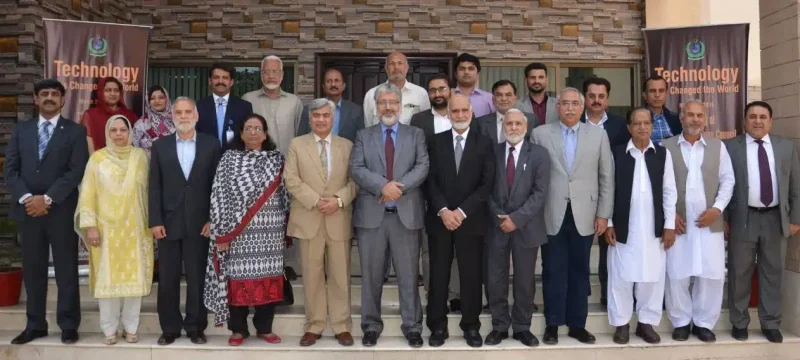LAHORE: The Punjab Industries Department has recommended that the National Technology Council of Pakistan (NTCP) Act and the service structure for BS technology graduates be approved in parliament as soon as possible. This issue has been stuck in a stalemate between the federal ministries of law and education.
The NTCP was founded through a notification in 2022, but without the support of an Act of Parliament or a proper service structure for graduates.
During a meeting last month, the chief secretary highlighted the difficulties confronting the province’s technical universities, emphasising the necessity for special campaigns to boost the number of students enrolled in the three technical universities established by the Punjab government.
Graduates who earn a three-year diploma following matriculation and subsequently pursue four-year BS technology degrees in diverse subjects do not have their degrees legally recognised. As a result, they are given lower-level posts in government ministries and are denied employment in the private sector.
Read more : Leaders in Islamabad Business Summit takes place
Stakeholders believe that B-Tech students are losing enthusiasm to attend technology institutes because the Pakistan Engineering Council (PEC) does not recognise the BS technology degree. They allege that despite having completed a four-year degree after a three-year diploma, for a total of 17 years of school, BS technology students are not afforded the same standing as engineering university graduates.
Industries Secretary Ehsan Bhutta stated in a letter to the chief secretary that B-Tech engineers suffer discriminatory policies that impede their job advancement and access to further education. “This unfair treatment has persisted for five decades, impeding Pakistan’s technological development,” he stated.
The secretary stated that the NTCP was founded by administrative power by Pakistan’s Higher Education Commission (HEC). However, it lacks the requisite legal framework that an Act of Parliament may offer, resulting in the failure to develop the required ecosystem. According to Mr. Bhutta, “as a result, technology education is not progressing as envisioned by technical experts or the government, and the dream of reaping the benefits of a knowledge economy remains distant.”
A draught NTCP Act and a draught service structure for technology graduates have been produced under the supervision of the HEC in conjunction with many stakeholders, including the existing NTCP, topic specialists, and heads of technology and engineering universities.
He stated that the adoption of the NTCP Act and service structure would increase the motivation of graduates and students to join the three technology universities in Punjab, in accordance with the government’s aim of promoting technology-based education. Furthermore, he stated that the fruits of Pakistan-China collaboration in the technology field, including the Punjab Tianjin University of Technology, Lahore, would be fully realised, as Chinese experts were also emphasising the issue of legal support for technology universities in Punjab in particular, and across Pakistan in general.









